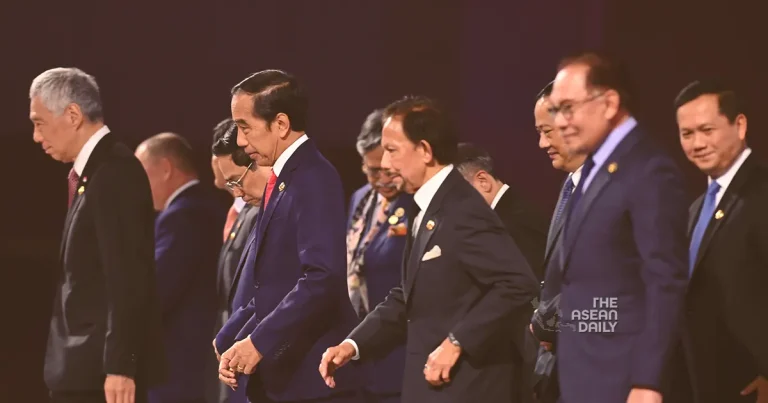8-9-2023 (JAKARTA) During the recently concluded three-day summit in Jakarta, ASEAN leaders, along with their Asian and Western counterparts, underscored the importance of unity and the rejection of bloc confrontation.
Indonesian President Joko Widodo, speaking at the opening of the 43rd ASEAN Summit, urged the regional grouping to remain united and not become a proxy for any power. He emphasized the need to avoid destructive rivalries within ASEAN and instead build cooperation, prosperity, stability, and peace.
President Widodo called on the United States to play a positive role in ensuring that the Indo-Pacific region remains stable, peaceful, and prosperous through inclusive cooperation. He stated that ASEAN has agreed to serve as the driving force for peace and stability, with the Indo-Pacific becoming a platform for collaboration.
Zhai Kun, the deputy dean of the Institute of Area Studies at Peking University, highlighted the United States’ attempt to provoke geopolitical confrontation in the Asia-Pacific region, particularly East Asia. However, ASEAN countries have demonstrated their reluctance to follow suit, according to Zhai.
Other ASEAN leaders share similar views. Singaporean Prime Minister Lee Hsien Loong stressed the importance of avoiding the formation of rival blocs or forcing countries to choose sides.
UN Secretary-General Antonio Guterres commended the unity displayed by ASEAN, describing it as a crucial factor for global unity in a divided world. Guterres emphasized that Southeast Asia plays a vital role in fostering understanding and cooperation worldwide, especially amid rising geopolitical tensions.
The Asia-Pacific region faces numerous challenges, including the climate emergency, escalating conflicts, poverty, inequality, and geopolitical tensions. The path chosen by these countries will determine the region’s future.
Chinese Premier Li Qiang, attending his first ASEAN summit, emphasized the commonalities among Asian countries and called for the proper handling of disagreements and disputes. Premier Li drew parallels with the historic Bandung Conference of the Third World in 1955, where then Chinese Premier Zhou Enlai proposed “seeking common ground while reserving differences” to navigate the complex international situation. Li stressed the importance of opposing bloc confrontation, picking sides, and a new Cold War, and instead focusing on proper handling of disagreements.
China-ASEAN cooperation remains strong, with China being ASEAN’s top trading partner. The total trade value between China and ASEAN reached 3.59 trillion yuan (519 billion U.S. dollars) in the first seven months of 2023. Future cooperation is expected to expand into innovative areas such as digital technology, new energy vehicles, the photovoltaic industry, and artificial intelligence.
Kao Kim Hourn, Secretary-General of ASEAN, expressed confidence in continuous collaboration and economic integration between China and ASEAN. He emphasized the importance of visible proposals that attract investment, trade, and job opportunities for the people.
ASEAN consists of Brunei, Cambodia, Indonesia, Laos, Malaysia, Myanmar, the Philippines, Singapore, Thailand, and Vietnam. The ASEAN community’s Post-2025 Vision, a roadmap for common prosperity, is being aligned with China’s Belt and Road Initiative, further strengthening the ASEAN-China relationship based on mutual trust and respect, as highlighted by Prime Minister Lee Hsien Loong.




